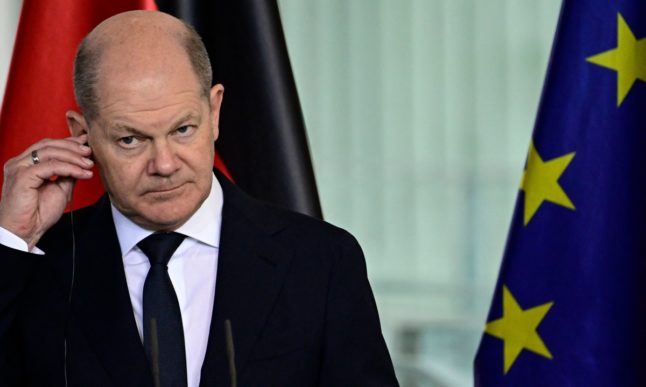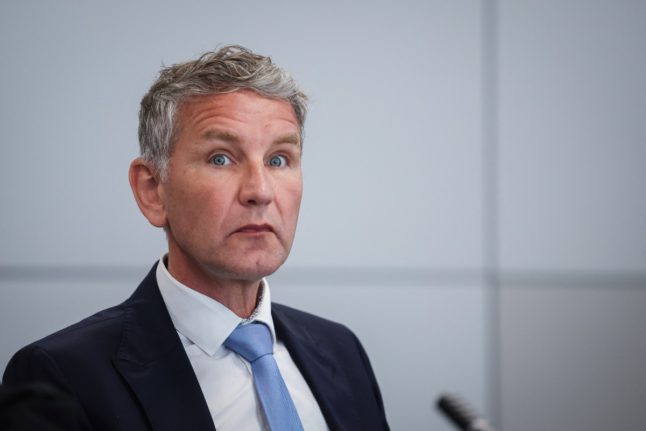Scholz touched down in the southwestern megacity of Chongqing on Sunday morning, Chinese state broadcaster CCTV said, accompanied by a large delegation of ministers and business executives.
As Western allies are cranking up pressure on Beijing, Scholz is expected to underline that Germany remains committed to doing business with the world’s second-largest economy and rejects US-led calls for “decoupling”.
His friendly overtures towards China risk sparking ire among Washington and EU partners, which have been pushing back against Beijing’s heavy subsidies for industries.
“China remains a really important economic partner,” Scholz told journalists on Friday, adding that he would try to level the playing field for German companies in China.
On the geopolitical front, Scholz will also use his visit to persuade Chinese President Xi Jinping to exert his influence to rein in his Russian counterpart Vladimir Putin and help bring an end to the war in Ukraine.
“Given the close relations between China and Russia, Beijing has the possibility to exert its influence on Russia,” said a German government source in Berlin.
The three-day tour through Chongqing, Shanghai and Beijing is Scholz’s second trip to China since he took office.
His first in November 2022 took place under intense scrutiny, as it came swiftly after Xi strengthened his grip on power, and marked the first post-pandemic visit by a G7 leader to China.
Stung then by painful supply chain disruptions during the health crisis as well as by China’s refusal to distance itself from Russia despite Moscow’s invasion of Ukraine, Western allies had been scrambling to reduce their reliance on Beijing.
‘Position of strength’
Scholz’s visit comes as many of Germany’s Western allies confront China on a range of trade issues.
A slew of probes into state aid for Chinese solar panels, electric cars and wind turbines are ongoing in Brussels.
The United States is meanwhile investigating national security risks posed by Chinese technology in cars.
With tensions rumbling over Taiwan, US President Joe Biden this week made defence pledges to Japan and the Philippines, while describing behaviour by Beijing in the South China Sea as “dangerous and aggressive”.
Two days before his visit, Scholz held talks with France’s President Emmanuel Macron, whose office said the leaders “coordinated to defend a rebalancing of European-Chinese trade relations”.
But China is a vital market for Germany, where many jobs depend directly on demand from the Asian giant.
Both economies also badly need a boost.
The German economy shrank by 0.3 percent last year, battered by inflation, high interest rates and cooling exports, and for this year, the economy ministry expects just an anaemic growth of 0.2 percent.
Beijing has set an annual GDP growth target of around five percent for this year, but exports plunged more than expected last month.
German MPs and analysts urged Scholz to take a firm line. The Green party’s Deborah Duering warned Scholz against viewing China just as an economic opportunity.
“Those who ignore long-term risks for short-term profits risk repeating the mistakes of the past, misguided Russia policy,” said Duering, in reference to past dependency on Moscow for cheap energy supplies.
Max Zenglein of the Mercator Institute for China Studies said Germany should not hesitate to be more assertive.
“As countries such as the USA and Japan are positioning themselves much more sharply against China, Germany has an important role to play,” he said, adding that Germany was “in a position of strength”.



 Please whitelist us to continue reading.
Please whitelist us to continue reading.
Member comments